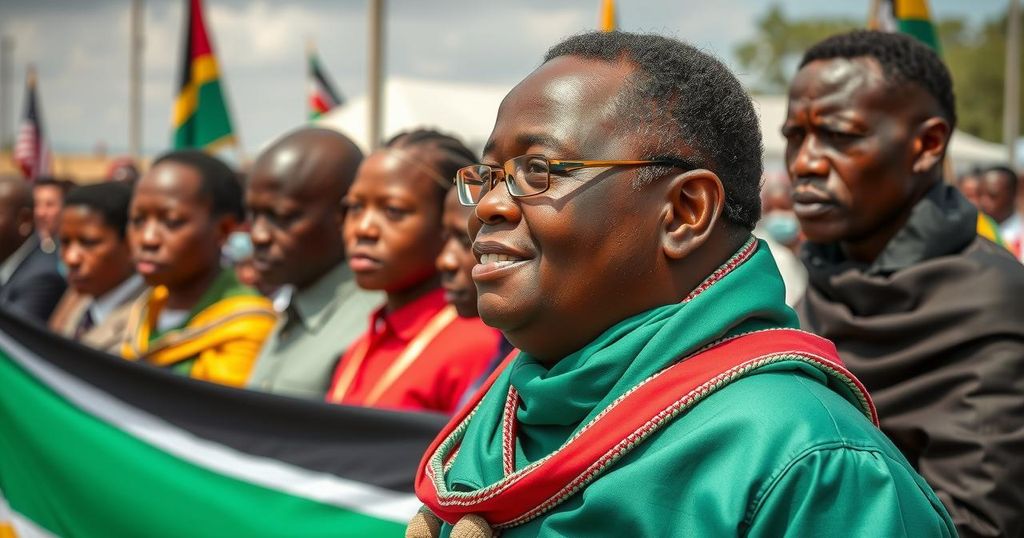South Sudan’s planned elections were postponed until December 2026, raising doubts about its potential for democratic transition. The country must overcome structural governance issues and engage in sincere dialogue to forge a national consensus beyond ethnic identity. A national conference is proposed to create a new constitution, emphasizing inclusiveness and participatory governance as a precursor to true democracy.
On September 18, 2024, the transitional government of South Sudan announced the postponement of elections originally scheduled for December 2026. This decision stems from the inability to fulfill critical legal, financial, and technical prerequisites necessary for credible elections. This raises a pivotal question: Can South Sudan successfully transition to democracy? Furthermore, what are the essential steps toward achieving such an outcome?
The root of South Sudan’s democratic crisis traces back to its independence in 2011, which ironically, did not forge a stable foundation for state-building. Post-independence governance has often favored specific ethnic groups, with the transitional constitution consolidating power in the president’s hands. This concentration of power has marginalized ordinary citizens, stifling local engagement and thwarting the growth of a vibrant civic landscape. Such governance has perpetuated a fragile semblance of unity while ethnic and regional conflicts persist.
Although the populace shares an undeniable responsibility for the country’s plight, the role of the international community has contributed significantly to the ongoing crisis. The predominant view frames South Sudan as merely a humanitarian concern, limiting perspectives on potential trade, investment, and growth opportunities. Since the civil war erupted in 2013, several peace agreements, notably those in 2015 and 2018, have failed to address the fundamental structural issues plaguing the country. Instead, these accords have tended to prioritize the interests of unelected leaders, leaving common citizens deprived of effective democratic institutions.
South Sudan requires a comprehensive solution rather than a piecemeal approach. Although elections may foster some trust in the political framework, they cannot rectify deeply rooted systemic problems. The nation has historically operated as an authoritarian regime, characterized by violence and oppression, stemming from a legacy of colonialism and resistance movements. Thus, what South Sudan necessitates is not merely a change in political leadership but a renewed pathway to independence—one that emphasizes the establishment of robust political, economic, and security institutions alongside meaningful pluralism.
For sustainable solutions, the South Sudanese must engage in sincere self-reflection, initiating a dialogue that critically examines the nation’s failures and strategizes on constructing a viable social contract conducive to stability and growth. The paramount issue is to define the core problems without external imposition, avoiding the entrenchment of ethnic identities in state structures while cultivating national unity based on citizenship. This leads to two pressing questions; how can the people of South Sudan build consensus around a democratic state while prioritizing justice?
Currently, the discourse surrounding South Sudan’s future is fragmented and often chaotic. Marginalized political and community groups, frustrated by the lack of an inclusive political process, resort to violence in seeking representation. To avert this, a national conference involving all sectors of society—political, civic, religious, and regional—should be convened. This assembly ought to reflect the nation’s ethnic diversity, emphasizing the inclusion of women and youth, to establish a new constitution that rectifies the shortcomings of the existing one, which was hastily enacted shortly before the nation’s independence.
To attain authentic democracy, solutions must be internally driven, transcending flawed models that equate peace agreements and elections with democratic progress. A South Sudanese-led initiative focused on a national dialogue would empower the citizenry, steering clear of elite-dominated governance patterns. Such a concerted effort could facilitate a second independence for South Sudan, fostering long-term stability and growth, thereby benefiting the entire Horn of Africa.
South Sudan achieved independence in 2011, but this did not translate into the establishment of functional governance or inclusive political processes. Since that time, the government has disproportionately favored certain ethnic groups and concentrated power in the hands of the president, undermining grassroots political participation. The nation has faced continuous internal conflicts, leading to disastrous humanitarian outcomes and further complicating international perceptions and engagement. The backdrop of these issues is further influenced by multiple ineffective peace agreements and ongoing regional instability, highlighting the urgent need for a comprehensive dialogue and reform.
In conclusion, South Sudan stands at a critical juncture demanding a grassroots dialogue to address its multifaceted issues. By fostering inclusive discussions and redefining national identity based on citizenship rather than ethnic divisions, South Sudan can pave the way to a democratic state. The focus should shift to nurturing institutions and a civic landscape that allows for equitable representation and governance, ultimately laying the groundwork for stability and growth vital to the nation’s future and the Horn of Africa at large.
Original Source: www.radiotamazuj.org






